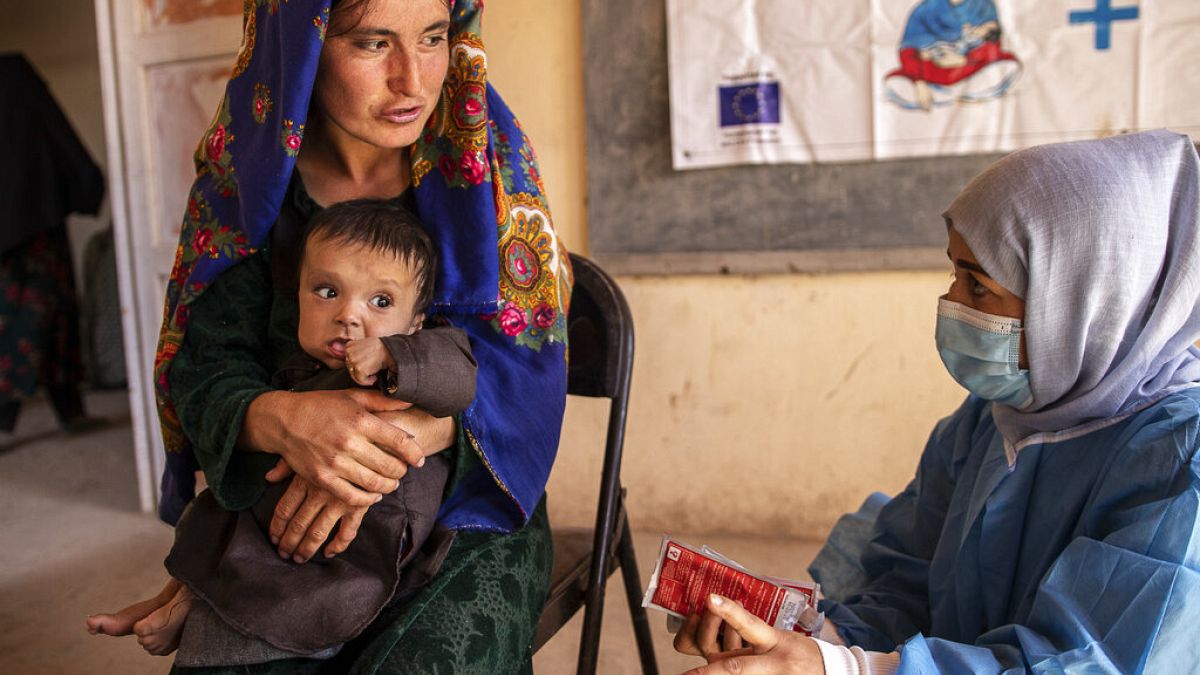The Taliban in Afghanistan have announced that they will close all national and foreign non-governmental organizations employing women, marking their latest attempt to control NGO activity. The Economy Ministry warned that failure to comply with this order would lead to NGOs losing their license to operate in the country. This announcement comes two years after the Taliban instructed NGOs to suspend the employment of Afghan women due to alleged violations of Islamic dress codes. The Taliban have already imposed restrictions on women, barring them from many jobs, public spaces, and education beyond sixth grade.
In addition to closing NGOs employing women, Taliban leader Hibatullah Akhundzada has issued a decree ordering that buildings must not have windows looking into places where women might sit or stand. This decree applies to both new and existing buildings, with windows overlooking areas like yards or kitchens to be obscured to “remove harm.” Municipalities and other authorities are instructed to supervise the construction of new buildings to ensure compliance with this order. This latest edict is part of the Taliban’s ongoing efforts to impose strict gender segregation and restrict women’s freedom in Afghanistan.
The Taliban’s crackdown on NGOs employing women comes amidst reports that female humanitarian workers are facing increasing obstacles from the Taliban’s morality police. A senior U.N. official, Tom Fletcher, reported that more humanitarian organizations are experiencing interference from the Taliban, hindering the delivery of essential relief work. The Taliban, however, denied these accusations, claiming that they are not impeding aid agencies or interfering with their activities. The closure of NGOs employing women is seen as another tactic by the Taliban to limit women’s participation in public life and restrict their access to employment opportunities.
The Taliban’s decision to close NGOs employing women has raised concerns about the impact on humanitarian efforts in Afghanistan. With the Taliban tightening their grip on power, the ability of aid organizations to provide crucial services to vulnerable populations is at risk. The closure of NGOs will not only affect the female employees who will lose their jobs but also have wider implications for the delivery of essential services in the country. International observers and human rights organizations have condemned the Taliban’s actions, calling for the protection of women’s rights and the preservation of humanitarian work in Afghanistan.
The Taliban’s directive to obscure windows in buildings to prevent views of women reflects their oppressive approach towards gender relations. By imposing strict architectural guidelines, the Taliban seek to reinforce gender segregation and control women’s movements in public and private spaces. This latest decree further demonstrates the Taliban’s determination to enforce their ultra-conservative interpretation of Islamic law, denying women basic freedoms and relegating them to subordinate roles in society. The international community must continue to advocate for gender equality and support the rights of Afghan women in the face of such regressive policies.
In response to the Taliban’s actions, the United Nations and other international organizations have called for urgent action to protect the rights of women in Afghanistan. The closure of NGOs employing women is seen as a violation of basic human rights and a setback for gender equality in the country. The international community must work together to pressure the Taliban to reverse these discriminatory policies and uphold the rights of Afghan women to work and participate fully in society. By standing in solidarity with Afghan women and advocating for their rights, the world can send a powerful message that oppression and discrimination will not be tolerated in any form.



























